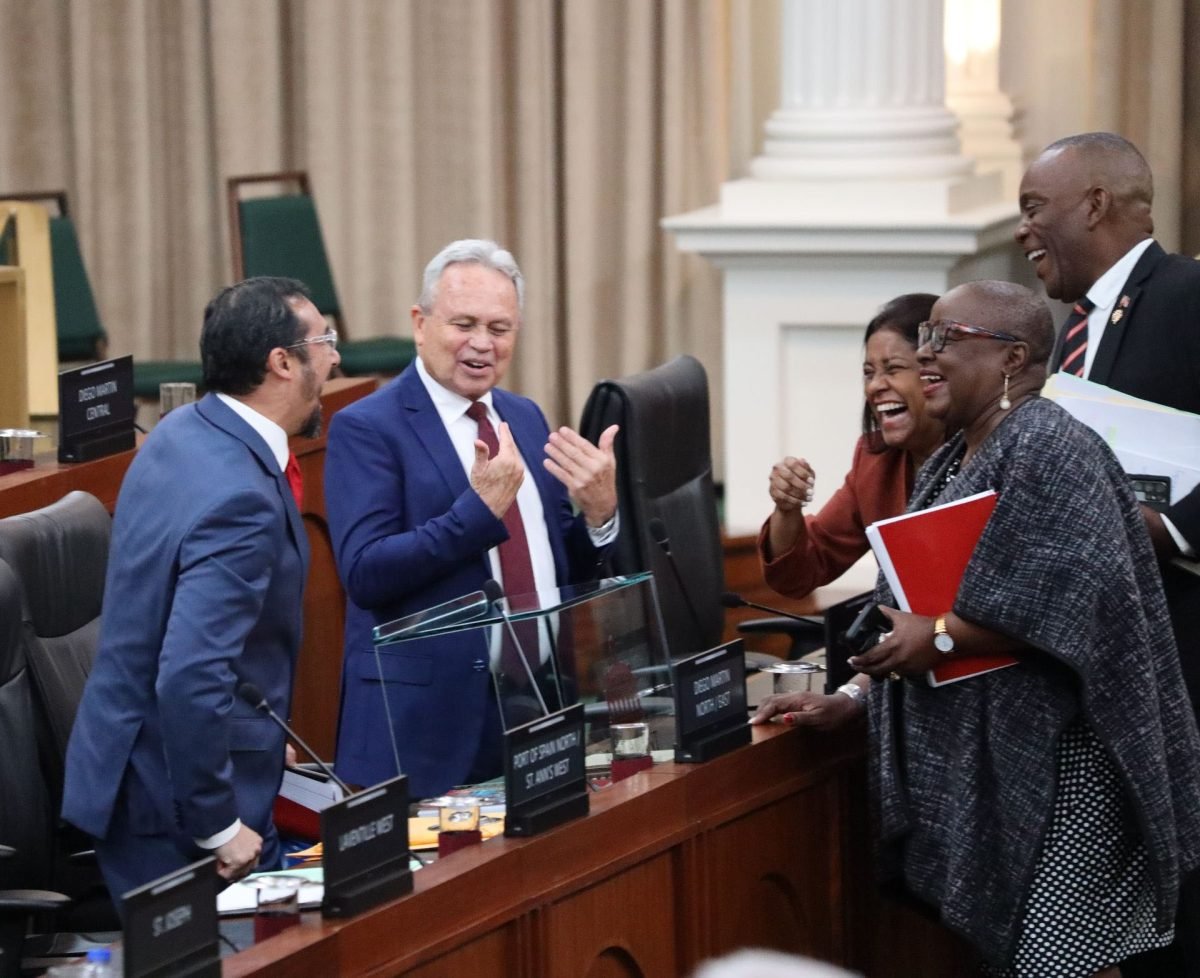(Trinidad Guardian) Finance Minister Colm Imbert on Monday delivered a budget package with salary increases and other sweeteners for public servants in an overall $59.7 billion package.
A five per cent wage increase offer for public servants, $2 minimum wage hike for public sector workers from November, VAT refunds coming, tax and NIS amnesties—and three entities shortlisted for the Guaracara refinery—were included in a package which some dubbed “an election budget.”
Loaded with optimism and positives, the Budget will apply to the period taking T&T up to the end of the next fiscal year ending September 2025—a period when general election is due.
Imbert gave a longer-than-usual presentation—five hours and 11 minutes—during which he positively detailed the PNM Government’s achievements in all sectors over the term.
Imbert added, “This 2025 Budget stands as a testament to our nation’s resilience amid the formidable challenges faced over the past nine years. We’ve come a long way since 2015, weathered many shocks, and proven that we are up to the task of governing this country effectively and equitably.
“Contrary to rumour, our economic future is assured, and we simply have to navigate a few challenging years before we reap the rewards of the work being done in both the oil and non-oil sectors.”
Not6ing the theme, “Steadfast and Resolute – Forging Pathways to Prosperity,” he said, “This theme underscores our commitment to fostering a diversified and resilient economy that can withstand external shocks and capitalise on emerging opportunities in the global marketplace.”
Amid a backdrop of Opposition protesters outside the Red House, Imbert’s $59.741 billion budget was slightly more than the 2024 figure of $59.209B.
The 2025 Budget was based on an oil price of US$77.80 and natural gas price of US$3.59 per mmbtu. Noting the volatility of energy prices, he said the 2025 basis was lower than the 2024 Budget basis of US$85 and US$5.
Projected revenue from the 2025 plan is $54.224B and the projected deficit is $5.517B.
The top allocation went to Health at $7.57B. Education was next with a $7.51B allocation, including a special purposes allocation for urgent school repairs.
The Tobago House of Assembly received $2.599B out of the $3.956B it had requested.
Wage hike, union offer…
Among announcements, Imbert said it was recognised that an increase to the minimum wage —while bringing comfort to those at the bottom of the income scale — can also create hardship for small businesses.
“We’ve, therefore, decided to not make any further increase in the national minimum wage at this time, especially since the last increase, just last year, was of the order of 17 per cent, and SMEs are still grappling with the challenge of managing that increase,” he said.
“However, the Government, as the largest single employer of people, is acutely aware of the difficulties endured by persons earning the minimum wage.”
While Government didn’t wish to place additional stress on the small business sector, while continuing to review the national minimum wage for an increase in subsequent years, he said the minimum wage earned by public sector employees would be increased from $20.50 an hour to $22.50 an hour, an increase of $2 per hour.
This increase benefits 5,100 workers at MTS, 6,900 workers in CEPEP and 6,200 in URP, among other public sector workers earning minimum wage.
Imbert said it would give security guards as much as $500 monthly of additional tax-free income and MTS janitorial staff will earn an additional $340 monthly. The increase will be effective from November 1st, 2024.
Imbert also said Government recognised that the four per cent offered to public sector workers for 2014-19 wasn’t large but it was all Government could have afforded then. It cost Government over $1 billion in backpay and increased recurrent annual expenditure by hundreds of millions of dollars.
However, he said the PSA and NUGFW’s refusal of that offer cannot be allowed to delay negotiations for the next bargaining period with other public sector trade unions, who represent more workers.
“I have today instructed the Chief Personnel Officer to make the necessary preparations to commence negotiations with those trade unions who accepted the previous four per cent offer, for the period January 2020 to December 2022. The Government, even in the face of our challenging financial circumstances, has decided to offer an increase of 5 per cent.”
That’s estimated to cost an additional $475 million annually in recurrent expenditure, with backpay up to the end of 2024 estimated at over $1B, he said.
“It will be difficult to find the money to make these payments, but we think it’s only fair and just,” he said, urging the PSA and NUGFW to accept the first four per cent.
Promises to hike grants
Imbert also promised, “We’re determined to expand our capacity to serve and to capitalise on the socio-economic advancements that lie ahead, ensuring that when re-elected, we’ll carry forward the momentum of progress. Government currently spends over $5 billion on social grants every year and at this time, because of our financial situation, it’s not possible to increase any grants. However, within a few years, as the cross border gas starts to flow, and revenues increase, we’ll improve the situation for the most vulnerable.”
Imbert said Government is aware that there is a significant sum of VAT refunds outstanding. He said the ministry intends once again to issue interest-bearing VAT bonds in fiscal 2025 in the sum of $3 billion with a target date for issuance of January 31, 2025.
“However, on this occasion, these bonds will be issued in a manner that does not create difficulties or shortages in the local foreign exchange market. Small and medium enterprises who are owed refunds will be paid in cash by December 31,” he noted.
He also promised that an online payment solution for property tax will be implemented on/before October 31, allowing bank transfers and card payments.

